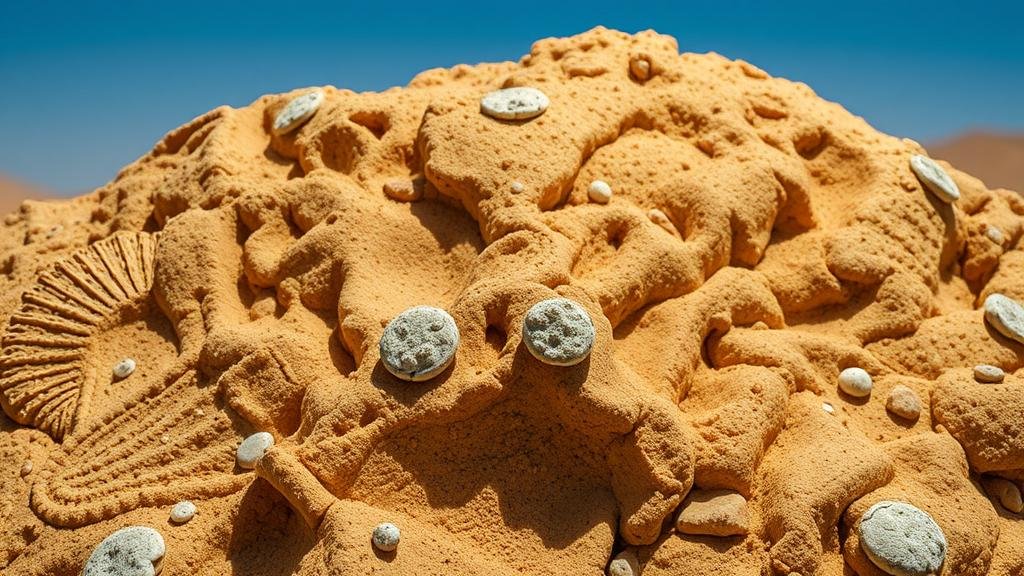Investigating ancient coral fossils in Morocco’s desert, offering a glimpse into prehistoric oceans.
Investigating Ancient Coral Fossils in Morocco’s Desert: A Glimpse into Prehistoric Oceans
Located in the heart of North Africa, Morocco is famed not just for its rich cultural heritage but also for its remarkable geological formations. Among these are ancient coral fossils found in the Sahara Desert, which offer rockhounds and mineral collectors a unique opportunity to delve into the world of prehistoric oceans. This article explores the significance of these fossils, their geological context, and practical advice for enthusiasts eager to uncover these remnants of the past.
The Geological Framework of Morocco
Moroccos geology is characterized by a complex history that spans hundreds of millions of years. region is primarily affected by the Paleozoic, Mesozoic, and Cenozoic eras, leading to a diverse stratigraphy. During the late Paleozoic and Mesozoic eras, much of Morocco was submerged underwater, creating a thriving ecosystem conducive to coral growth.
Fossilized Coral: Insights into Marine Life
Coral fossils, primarily from the order Scleractinia, are prominent in the Moroccan fossil record. These corals provide critical data regarding ancient marine environments and climate. Notably, these fossilized reefs serve as indicators of historical sea levels and water temperature. For example, corals found in the Agadir region date back to the Jurassic period, roughly 150 million years ago. Specimens typically display intricate patterns that reflect their living counterparts, exhibiting the same structural complexity.
The Importance of Coral Fossils
The study of ancient coral fossils not only enriches our understanding of evolutionary biology but also contributes to climate science. As corals are sensitive to temperature changes, their fossil records can reveal past climate conditions, aiding scientists in predicting future changes. For example, a study published by the Journal of Paleontology indicates that variations in coral growth patterns align closely with historical global temperature shifts.
Finding Coral Fossils in Morocco
For rockhounds and mineral collectors keen on exploring this fascinating aspect of Morocco’s geology, here are useful tips for locating coral fossils:
- Research Geological Maps: Use geological maps that highlight fossiliferous regions, such as the Anti-Atlas Mountains, to strategize your collecting expeditions.
- Visit Specific Localities: Target known fossil beds, particularly in sites like the Tafilalet region and near Erfoud, where coral fossils are plentiful.
- Consult Local Experts: Engaging with local geologists and fossil collectors can provide valuable insights and lead you to less-publicized sites.
- Follow Legal Guidelines: Be well-informed about the regulations regarding fossil collection in Morocco to ensure ethical practices.
Collecting Tips for Hobbyists
When collecting fossils, especially coral, consider the following best practices:
- Use Proper Tools: Equip yourself with appropriate tools such as hammers, chisels, and safety gear to extract fossils safely while minimizing damage to specimens.
- Document Your Finds: Keep a detailed record of where and how you found each fossil, including GPS coordinates if possible, to enhance its scientific value.
- Preserve Your Fossils: Clean fossils gently to remove debris, and store them properly to prevent damage. Avoid using harsh chemicals that may deteriorate the specimen.
The Role of Coral Fossils in Modern Science
Research on coral fossils continues to play a fundamental role in our comprehension of oceanic changes and biodiversity. For example, a report by the University of Washington highlights how fossilized corals help establish baselines for current coral health, showcasing the impact of climate change on modern reef systems. As such, the implications of studying these ancient specimens extend beyond curiosity, providing essential clues in the problem-solving toolkit for today’s environmental challenges.
Conclusion: Embrace the Adventure
Investigating ancient coral fossils in Morocco’s desert is not only a thrilling adventure for rockhounds and mineral collectors but also an opportunity to connect with Earth’s evolutionary history. By understanding the geological significance and honing collecting techniques, enthusiasts can uncover a piece of the prehistoric ocean while contributing to broader scientific knowledge. Whether it’s for personal enjoyment or scientific study, the journey into Morocco’s fossil-laden landscapes promises to be rewarding.



